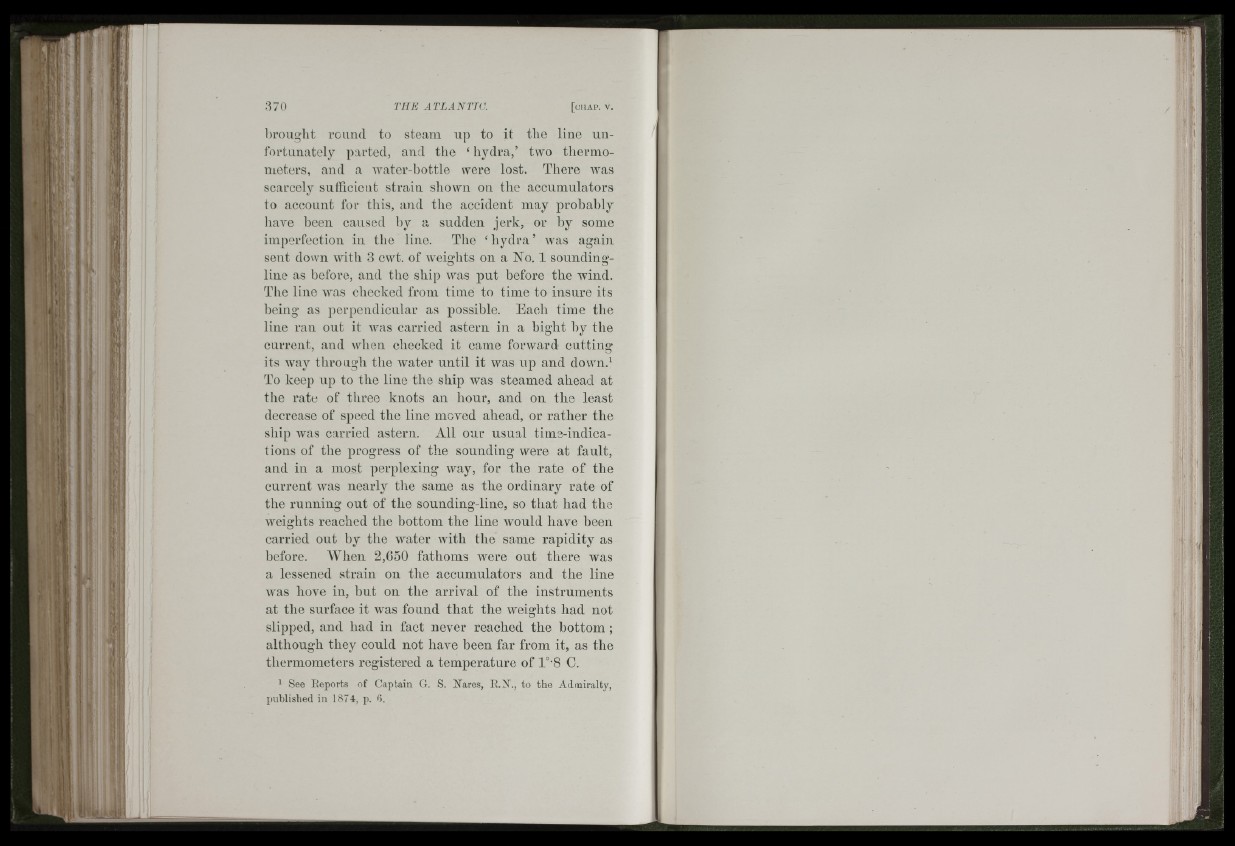
i
I G
brought round to steam up to it the line unfortunately
parted, and the ‘ hydra,’ two thermometers,
and a Avater-bottle were lost. There Avas
scarcely suiricieut strain shown on the accumulators
to account for this, and the accident may probably
liaA'e been caused by a sudden jerk, or hy some
imperfection iu the line. The ‘ hydra ’ Avas again
sent down Avith 3 cvaT. of AA’eights on a No. 1 sounding-
line as before, and the ship Avas put before the Avind.
The line Avas checked from time to time to insure its
heing as jierpendicular as possible. Each time the
line rail out it Avas carried astern in a bight hy the
current, and Avheu cheeked it came forward cutting
its AA'ay through the Avater until it Avas np and doum.^
To keep up to the line the ship was steamed ahead at
the rate of three knots an hour, and on the least
decrease of speed the line moved ahead, or rather the
ship Avas carried astern. All our usual time-indica-
tions of the progress of the sounding were at fault,
and ill a most perplexing Avay, for the rate of the
current AA’as nearly the same as the ordinary rate of
the running out of the sounding-line, so that had the
Aveights reached the bottom the line would have been
carried out by the water Avith the same rapidity as
before. AVhen 2,650 fathoms were out there was
a lessened strain on the accumulators and the line
Avas hove in, but ou the arrival of the instruments
at the surface it Avas found that the Aveights had not
slipped, and had in fact never reached the bottom ;
although they could not have been far from it, as the
thermometers registered a temperature of 1°‘8 C.
1 See Reports of Captain G. S. Nares, R.N., to the Admiralty,
published in 1874, p. 6.